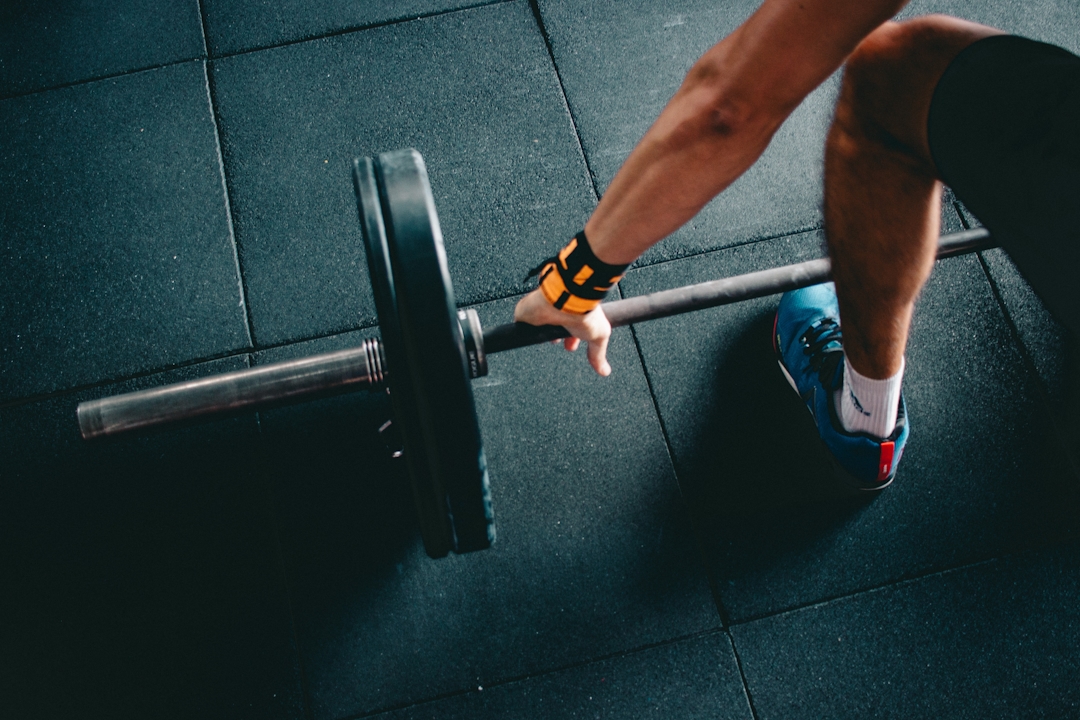
Hydration Hacks: How Much Water Should You Really Be Drinking for Optimal Health?
Discover essential hydration tips and learn the ideal water intake for maintaining optimal health and well-being.

Audio Summary
Key Takeaways
- hydration benefits
- factors affecting water needs
- recommended water intake
- signs of dehydration
- tips for increasing water consumption
Staying Hydrated: A Guide to Optimal Water Intake
Water is essential for life, and staying hydrated is crucial for our health and well-being. But how much water should we be drinking each day? This question has puzzled many, as the answer isn't always straightforward. Our bodies need water to function properly, from regulating body temperature to aiding digestion. However, the amount of water each person needs can vary based on several factors, including age, activity level, and even climate. In this guide, we'll explore the importance of hydration and provide practical tips to help you stay hydrated throughout the day. Whether you're an athlete, a busy professional, or simply looking to improve your overall wellness, understanding your daily water intake requirements is a key step toward achieving optimal health. Key points we'll cover: The benefits of proper hydration, Factors affecting individual water needs, recommended daily water intake guidelines, signs of dehydration to watch out for, tips for increasing your water consumption, and hydration for different lifestyles and activities. By the end of this article, you'll have a better understanding of how to maintain proper hydration for your unique needs and lifestyle. Stay tuned for expert advice on keeping your body well-hydrated and functioning at its best.
Understanding Your Hydration Needs
Everyone's water requirements differ, and it's crucial to know your optimal hydration levels. While the '8 glasses a day' rule is common, your ideal water intake depends on several key factors.
- Body Size and Composition: Larger individuals generally require more water than smaller ones. Your body composition plays a role in determining your hydration needs.
- Activity Level: If you exercise regularly or have a physically demanding job, you'll need to increase fluid intake to replace what's lost through perspiration.
- Climate: Climate plays a significant role. Hot and humid weather increases sweat production, necessitating extra hydration. Conversely, cooler climates may reduce your water needs.
- Diet: Diet affects hydration too. A diet rich in fruits and vegetables, which contain natural water, might decrease your need for additional fluids. However, diets high in salty or processed foods may require increased water consumption.
- Health Conditions: Consider any health conditions. Some medications can impact how your body processes water, and certain health issues might necessitate adjusting your fluid intake.
- Listen to Your Body: Pay attention to your body's signals. Thirst is a reliable indicator of dehydration. Monitor your urine color – pale yellow suggests good hydration, while darker shades indicate a need for more fluids.
Remember, hydration isn't limited to water alone. Other beverages and some foods contribute to your daily fluid intake. The key is finding the right balance for your unique body and lifestyle needs.
Simple Tips for Staying Hydrated
Maintaining proper hydration doesn't have to be complex. Here are some easy strategies to ensure you're getting enough fluids throughout the day:
- Carry a reusable water bottle: Keep it with you everywhere. This serves as a constant hydration reminder and helps track your water consumption.
- Set hydration reminders: Use your smartphone or smartwatch to set regular water break alerts. This is particularly helpful during busy days.
- Infuse your water: If plain water isn't appealing, try adding slices of lemon, cucumber, or berries for a natural flavor boost.
- Incorporate water-rich foods: Include high-water content foods in your diet, such as watermelon, cucumbers, and lettuce. These contribute to your daily fluid intake.
- Start with morning hydration: Drink a glass of water upon waking to kickstart your daily hydration.
- Pair water with meals: Make it a habit to drink water with every meal. This aids hydration and can improve digestion.
- Use a straw: Some find they consume more water when using a straw. Experiment to see if this works for you.
- Explore herbal teas: Unsweetened herbal teas can increase your fluid intake, especially when you crave a warm beverage.
- Monitor your intake: Utilize a hydration tracking app or a simple journal to record your daily water consumption.
- Substitute sugary drinks: Try replacing one sugary beverage with water or sparkling water daily.
Remember, small changes can significantly impact your hydration levels. Find the strategies that best suit your lifestyle and incorporate them into your daily routine.
Signs of Dehydration and When to Seek Medical Attention
Recognizing dehydration symptoms is essential for maintaining optimal health. While mild dehydration can often be addressed at home, severe cases may require immediate medical intervention. Here are key indicators to watch for:
- Mild to Moderate Dehydration: Increased thirst, dry or sticky mouth, reduced urine output or darker urine, dry, cool skin, headache, muscle cramps, and fatigue or lethargy. If you experience these symptoms, gradually increase your fluid intake and rest. Most mild dehydration cases can be resolved by consuming water or clear fluids.
- Severe Dehydration: Extreme thirst, very dry mouth, skin, and mucous membranes, Minimal or no urine output; dark yellow or amber urine, rapid heartbeat, accelerated breathing, sunken eyes, lack of energy, confusion, or irritability, fainting spells. Severe dehydration is a medical emergency. If you or someone nearby exhibits these symptoms, seek immediate medical assistance. This is particularly crucial for young children, older adults, and individuals with chronic illnesses, who are more susceptible to dehydration.
- High-Risk Situations: Be aware that certain situations elevate dehydration risk: Intense physical activity, especially in hot climates, illnesses causing vomiting or diarrhea, fever, excessive alcohol consumption, and certain medications, particularly diuretics. Monitor your fluid intake closely in these scenarios and be vigilant for dehydration signs. When in doubt, consult a healthcare professional for personalized advice based on your specific health status and situation.
Remember, prevention is key. By staying attuned to your body's needs and maintaining proper hydration habits, you can often avoid the discomfort and potential dangers associated with dehydration.
Conclusion: The Importance of Proper Hydration
Maintaining optimal hydration is crucial for overall health and wellness. We've discovered that individual water needs vary based on factors such as body composition, activity levels, climate, and dietary habits. While the '8 glasses a day' guideline provides a useful starting point, it's essential to tune into your body's signals and adjust fluid intake accordingly. We've explored practical hydration strategies, including Carrying a reusable water bottle, Setting hydration reminders, and Incorporating water-rich foods into your diet, These simple yet effective changes can significantly improve your daily hydration routine. Recognizing dehydration symptoms is vital, ranging from mild indicators like thirst and dry mouth to severe signs such as rapid heartbeat and confusion. Remember, severe dehydration requires immediate medical attention. You can effectively manage your fluid balance and support optimal bodily functions by understanding your unique hydration requirements, implementing easy-to-follow hydration techniques, and staying vigilant for dehydration symptoms. Prioritizing hydration is a simple yet powerful way to enhance your overall health and well-being. Make proper hydration a cornerstone of your daily routine. Your body will reap the benefits of this essential health practice, contributing to Improved energy levels, enhanced cognitive function, and better physical performance. Stay hydrated, stay healthy!
References
- Mayo Clinic. (n.d.). Water: How much should you drink every day? Retrieved from https://www.mayoclinic.org/healthy-lifestyle/nutrition-and-healthy-eating/in-depth/water/art-20044256
- Henry Ford Health. (2024). How Much Water Should I Drink Each Day For Optimal Hydration? Retrieved from https://www.henryford.com/blog/2024/07/optimal-hydration
- Harvard Health Publishing. (2023). How much water should you drink a day? Retrieved from https://www.health.harvard.edu/staying-healthy/how-much-water-should-you-drink
- Healthline. (2023). 12 Simple Ways to Drink More Water. Retrieved from https://www.healthline.com/nutrition/how-to-drink-more-water
- BSW Health. (2023). Hydration hacks: Fun, innovative ways to boost your water intake. Retrieved from https://www.bswhealth.com/blog/hydration-hacks

Related Blog Content

Purify Your Body and Boost Health with Natural Detox
Discover effective natural methods to cleanse and rejuvenate your body, promoting overall health and well-being.
Read More
How can I improve my energy levels?
Discover natural ways to boost energy levels through diet, exercise, and lifestyle changes. Learn strategies to enhance overall vitality.
Read More
Revitalize Your Fitness: Essential Nutrition Tips for Consistent Energy Boosts
Discover key nutrition tips to keep your energy levels high and enhance your fitness journey effortlessly.
Read MoreReady to optimize your biology?
Nutritionaly is free to start. Build better habits, unlock insights, and watch your Bio-Score rise.